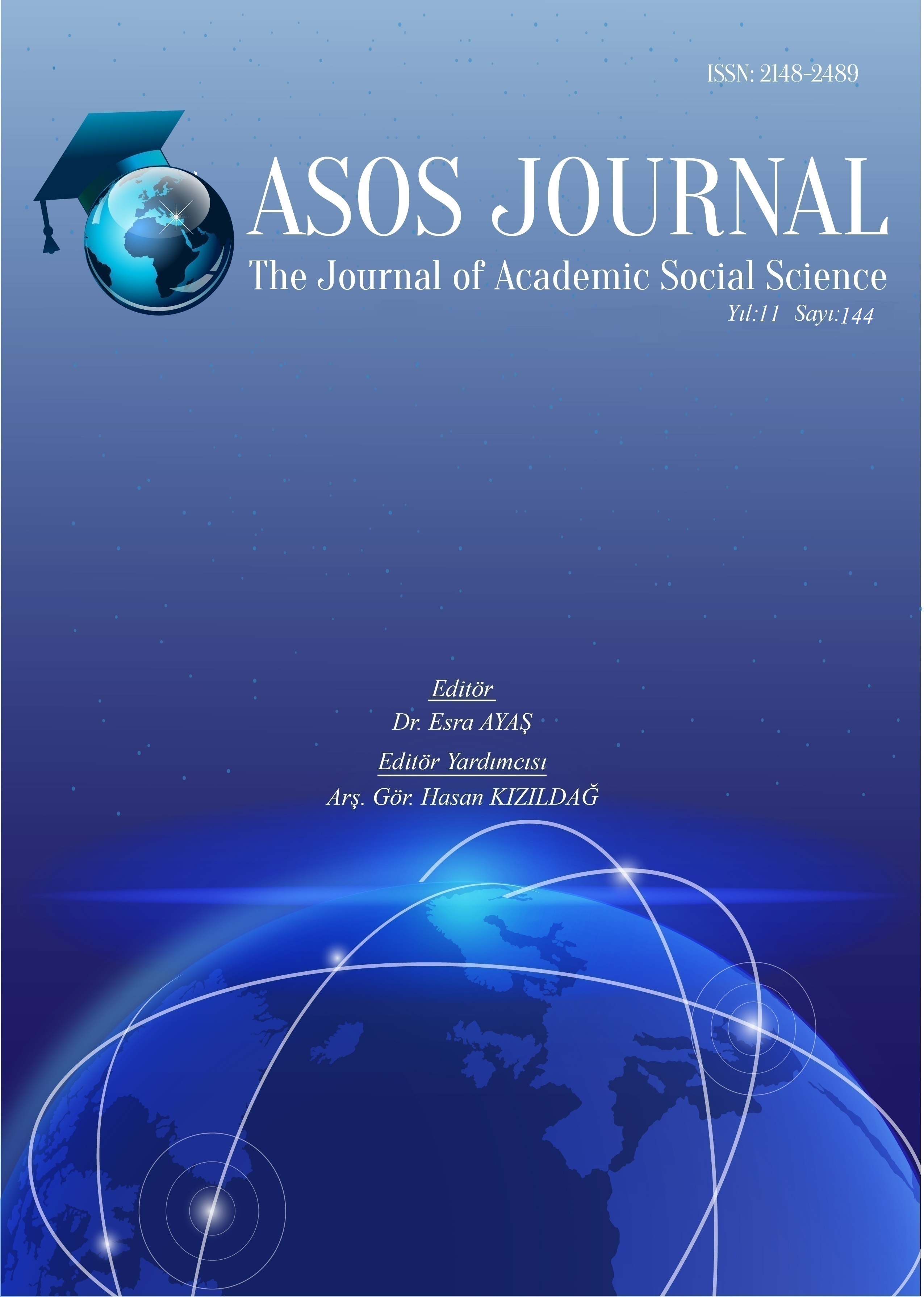Author :
Abstract
İnsanoğlu tarihin ilk çağlarından beri taş ve toprağa şekil vererek bu kaynaklardan çeşitli şekillerde yararlanmıştır. Sanayi devrimiyle birlikte sektörde başlayan makineleşme; üretimin hızlanmasına, ürünlerin çeşit ve kalitesinin artmasına ve endüstriyel ürünlerin yaygın bir şekilde kullanılmasına olanak sağlamıştır. Taş ve toprağa dayalı sanayii, başta konut olmak üzere her türlü inşaat faaliyetlerinde kullanılmak üzere çimento, tuğla, kiremit, seramik, beton, alçı gibi ürünlerin imalatını gerçekleştirir. Bu çalışmada; Sanayi Coğrafyası prensipleri çerçevesinde, Eskişehir ili özelinde taş ve toprağa dayalı sanayilerin tarihsel gelişimi, mevcut durumu, sorunları ve mekânsal etkilerinin ortaya konulması amaçlanmaktadır. Elde edilen bulgulardan hareketle sektörün sorunlarına dönük çözüm önerileri getirilmiştir. İl kapsamında evreni temsil edecek güçte ve çeşitli alt sektörlerde 11 adet taş ve toprağa dayalı sanayii işletmesine 2019 Temmuz ve Ağustos ve 2020 Temmuz ayında anket uygulanmıştır. Uygulanan anketlerden elde edilen veriler betimsel analizine uygun olarak yorumlanmış ve sektöre dair elde edilen sonuçlardan hareketle öneriler getirilmiştir. Eskişehir ilinde taş ve toprağa dayalı sanayii 1927 yılında kurulan Kılıçoğlu Kiremit Fabrikası ile başlamıştır. İlerleyen yıllarda taş ve toprağa dayalı sanayiinin diğer alt sektörlerinde faaliyet gösteren işletmelerin kurulmasıyla gelişim göstermiştir. İl’de faaliyet gösteren imalat sanayii işletmelerinin %7,84’ü taş ve toprağa dayalı sanayii işletmelerinden ibarettir. Ayrıca ildeki imalat sanayii istihdamının %12,95’i taş ve toprağa dayalı sanayilerde istihdam edilmektedir. Eskişehir ilinde taş ve toprağa dayalı sanayii kuruluşları; pazar, talep istikrarsızlığı ve rekabet fazlalığı konularında sorunlar yaşamaktadır. Anket yapılan işletmelerin %45,45’i katı-sıvı atık, %36,36’sı yatay yönde büyüyememe ve %27,27’si görüntü kirliliği oluşturma sorunları yaşadıklarını dile getirmişlerdir. Atık sorununu ortadan kaldırabilmek için arıtma tesisi olmayan işletmelerin Eskişehir Organize Sanayi Bölgesi’ne taşınmalarının teşvik edilmesi gerekmektedir.
Keywords
Abstract
Since the early ages of history, humankind has utilized these resources in various ways by shaping stone and soil. The mechanization that started in the sector with the industrial revolution has accelerated production, increased the variety and quality of products and enabled the widespread use of industrial products. The stone and soil-based industry manufactures products such as cement, bricks, tiles, ceramics, concrete and plaster to be used in all kinds of construction activities, especially housing. In this study, within the framework of Industrial Geography principles, is aimed to reveal the historical development, current situation, problems and spatial effects of stone and soil based industries in Eskişehir province. Based on the findings obtained, solutions have been proposed for the sector’s problems. A questionnaire was applied to 11 stone and soil-based industrial enterprises in various sub-sectors in July, August 2019 and July 2020. The data obtained from the applied questionnaires were interpreted by descriptive content analysis, and suggestions were made based on the results obtained from the sector. The stone and soil-based industry in Eskişehir province started with Kılıçoğlu Tile Factory, established in 1927. In the following years, it developed with the establishment of enterprises operating in other sub-sectors of the stone and soil-based industry. Of the manufacturing industry enterprises in the province, 7.84% are stone- and soil-based. In addition, 12.95% of the manufacturing industry employment in the province is employed in stone and soil-based industries. In Eskişehir province, stone and soil based industrial enterprises face problems in terms of market, demand instability and excessive competition. 45.45% of the surveyed enterprises stated they have issues with solid-liquid waste, 36.36% were unable to grow horizontally and 27.27% with visual pollution. To eliminate the waste problem, enterprises without treatment plants should be encouraged to move to Eskişehir Organized Industrial Zone.





